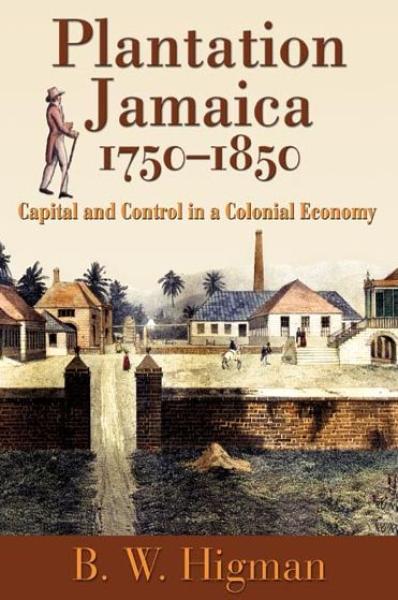Description
Aalyses the important but neglected role of the attorneys who managed estates, chiefly for absentee proprietors, and assesses their efficiency and impact on Jamaica during slavery and freedom. This work charts both the extent of absentee ownership and the complex structure of the managerial hierarchy that stretched across the Atlantic.
B.W. Higman is Emeritus Professor of History, University of the West Indies, and Emeritus Professor of History, Australian National University. He is the author of eleven books on Caribbean history, archaeology and geography, including the award-winning publications Slave Population and Economy in Jamaica, 1807-1834; Slave Populations of the British Caribbean, 1807-1834; Jamaica Surveyed: Plantation Maps and Plans of the Eighteenth and Nineteenth Centuries; Montpelier, Jamaica: A Plantation Community in Slavery and Freedom, 1739-1912; Writing West Indian Histories; Plantation Jamaica, 1750-1850: Capital and Control in a Colonial Economy; and Jamaican Food: History, Biology, Culture. His most recent books are A Concise History of the Caribbean and How Food Made History.
"A sustained tour de force of superb scholarship that deals with an extremely important and hitherto lightly examined topic in Jamaican history in a way that will shape academic discourse on plantation Jamaica for a generation."
"Another major contribution by the author to West Indian history and the history of slavery ... a first-rate study, among the best recent writings on these topics."
"Plantation Jamaica challenges earlier stereotypes and generalizations about attorneyship and plantation management in the eighteenth and nineteenth centuries. The book is essential reading for scholars of Caribbean economic and business history, and it will surely take its place as a standard text against which future scholarship on this issue will be judged."
B.W. Higman is Emeritus Professor of History, University of the West Indies, and Emeritus Professor of History, Australian National University. He is the author of eleven books on Caribbean history, archaeology and geography, including the award-winning publications Slave Population and Economy in Jamaica, 1807-1834; Slave Populations of the British Caribbean, 1807-1834; Jamaica Surveyed: Plantation Maps and Plans of the Eighteenth and Nineteenth Centuries; Montpelier, Jamaica: A Plantation Community in Slavery and Freedom, 1739-1912; Writing West Indian Histories; Plantation Jamaica, 1750-1850: Capital and Control in a Colonial Economy; and Jamaican Food: History, Biology, Culture. His most recent books are A Concise History of the Caribbean and How Food Made History.
"A sustained tour de force of superb scholarship that deals with an extremely important and hitherto lightly examined topic in Jamaican history in a way that will shape academic discourse on plantation Jamaica for a generation."
"Another major contribution by the author to West Indian history and the history of slavery ... a first-rate study, among the best recent writings on these topics."
"Plantation Jamaica challenges earlier stereotypes and generalizations about attorneyship and plantation management in the eighteenth and nineteenth centuries. The book is essential reading for scholars of Caribbean economic and business history, and it will surely take its place as a standard text against which future scholarship on this issue will be judged."
Last updated on
Product Details
- Jan 1, 2008 Pub Date:
- 9766402094 ISBN-10:
- 9789766402099 ISBN-13:
- 386 Pages
- 9.94 in * 7.06 in * 1.11 in Dimensions:
- 2 lb Weight:




